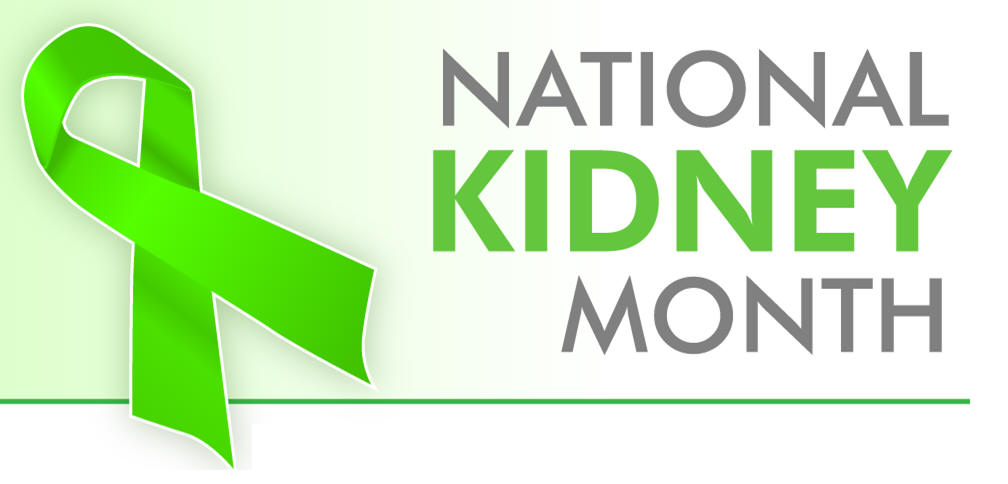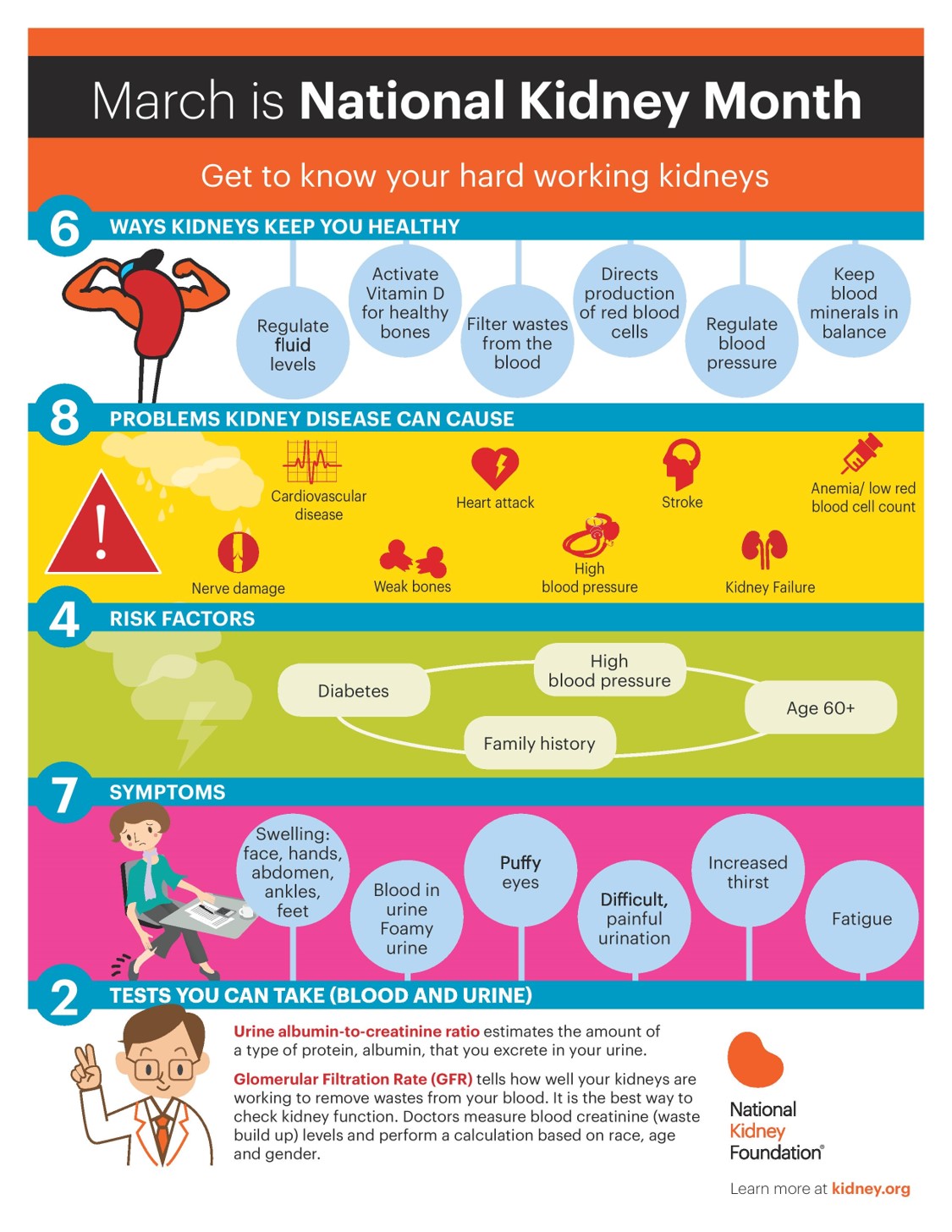
Kidney Disease Awareness

Take Care of Your Kidney’s
March is
Kidney awareness month.
The kidneys are complicated and amazing organs that do many essential tasks to keep us healthy. Since 2011, kidney disease has ranked as the ninth leading cause of death in the United States. There are more than 20 million Americans living with chronic kidney disease and most have no idea that their kidneys are in danger. Left untreated, chronic kidney disease can eventually cause complete kidney failure. This leaves transplantation or dialysis as the only thing that can keep patients alive.
The main job
of your kidneys is to remove toxins and excess water from your blood. Kidneys
also help to control your blood pressure, to produce red blood cells and to keep
your bones healthy. Each roughly the size of your fist, kidneys are located deep
in the abdomen, beneath the rib cage. Your kidneys control blood stream levels
of many minerals and molecules including sodium and potassium, and help to
control blood acidity. Every day your kidneys carefully control the salt and
water in your body so that your blood pressure remains the same.

Did you know your kidneys:
Ø Make urine
Ø Remove wastes and extra fluid from your blood
Ø Control your body’s chemical balance
Ø Help control your blood pressure
Ø Help keep your bones healthy
Ø Help you make red blood cells
Are you at risk?
Ø Do you have high blood pressure?
Ø Do you suffer from diabetes?
Ø Do you have a family history of kidney disease?
Ø Are you overweight?
Ø Do you smoke?
Ø Are you over 50 years old?
Ø Are you of African, Hispanic, Aboriginal or Asian origin?
If you answered yes to one or more of these questions, you should discuss with your doctor, you may need testing for kidney disease! Early chronic kidney disease has no sign or symptoms. You can help delay or prevent kidney failure by treating kidney disease early.
Did you know?
A person can lose up to 90% of their kidney function before experiencing any symptoms?
Symptoms
Most people have no symptoms until chronic kidney disease (CKD) is advanced. Signs of advancing CKD include swollen ankles, fatigue, difficulty concentrating, decreased appetite, blood in the urine and foamy urine.
Detection of Kidney Disease
The majority of individuals with early stages of CKD go undiagnosed. Kidney disease usually progresses silently, often destroying most of the kidney function before causing any symptoms. The early detection of failing kidney function is crucial because it allows suitable treatment before irreversible kidney damage or deterioration manifests itself through other complications.
Simple laboratory tests are done on small samples of blood (to measure creatinine content and estimate GFR) (Glomerular Filtration Rate) and on urine (to measure creatinine and albumin excretion).
Golden Rules for Prevention
Kidney diseases are silent killers, which largely affect your quality of life. There are however several easy ways to reduce the risk of developing kidney disease.
Key
preventative measures have been defined and proven successful in those with
early stages of CKD as secondary prevention measures, which help slow disease
progression and protect against both kidney and cardiovascular disease, such as:
Ø Reduction of high blood pressure- the lower the blood pressure (within the normal range), the slower the GFR decline
Ø Specific medications to reduce proteinuria as well as lower blood pressure
Ø Reduce salt intake to lower blood pressure
Ø Control of glucose, blood lipids and anemia
Ø Smoking cessation
Ø Increase in physical activity
Ø Control of body weight
Treatment: Clinical research over the last two decades has shown the potential benefit of blockade of the renin-angiotensin system by medicines known as ACE inhibitors and ARBS. This can significantly delay the progression of CKD, especially in people with diabetes and hypertension at relatively low cost.
Talk with your doctor about getting screened for kidney disease.
Reference: http://www.worldkidneyday.org/faqs/take-care-of-your-kidneys/
http://www.achieveclinical.com/news/national-kidney-awareness-month-infographic/
Brought to you by the Health Care Ministry-WOMBC